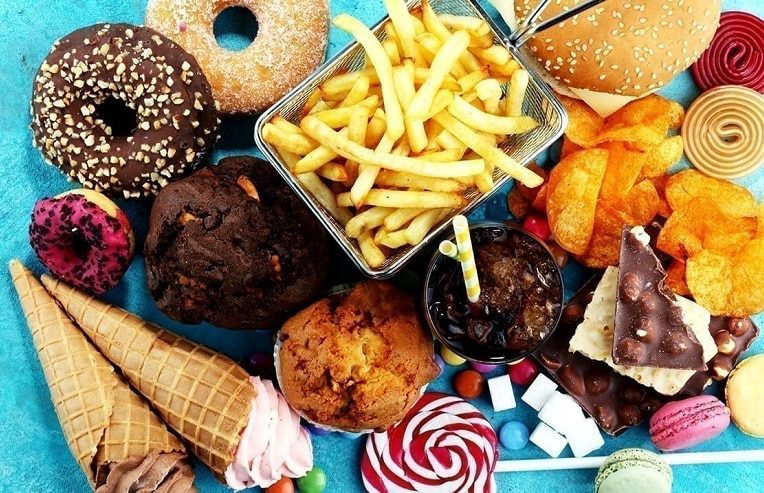If you’ve ever devoured a pint of ice cream after a long day or found yourself dreaming about your mom’s lasagna mid-Zoom call, you’re not broken—you’re human.
Food cravings get a bad rap in diet culture. They’re often labeled as weaknesses, indulgences, or “bad habits” to be tamed or ignored. But what if your cravings were actually trying to help you?
According to holistic wellness experts, intuitive eating coaches, and decades of research, food cravings aren’t something to fear or suppress. Instead, they can be powerful messengers revealing your emotional needs, hidden stressors, and deeper desires. When you learn how to listen, they might just lead you back to a more peaceful, trusting relationship with food—and with yourself.
Let’s dive into how to decode cravings and explore seven expert-backed ways to work with them, not against them.
Why We Crave: It’s Not Always About the Food
Here’s the thing: cravings can be biological or emotional. Yes, your body may need a nutrient you’re low on—but often, it’s deeper than that.
Psychologists and intuitive eating experts say that cravings can stem from emotional triggers like stress, loneliness, boredom, or a need for comfort or control.
Geneen Roth, author of the bestselling book Women, Food, and God, puts it like this:
“Compulsive eating is only the symptom; believing that you are not worth your own love is the problem.”
Roth’s philosophy flips traditional dieting on its head. Rather than avoiding cravings, she teaches people to get curious about them—because behind that craving is often an unmet emotional need. Sloane Elizabeth, a food freedom coach, echoes this:
“I realized it wasn’t really about the food at all. It was about control issues and perfectionism.”
Cravings are not failures. They’re signals. And when we learn to listen to them with compassion instead of judgment, healing begins.
Science Supports Intuitive Eating (And It’s Not a Fad)
Think intuitive eating is just a trendy Instagram buzzword? Think again.
A 2021 review published in Eating and Weight Disorders linked intuitive eating with improved self-esteem, body image, and mental well-being. Another long-term 2020 study showed that intuitive eating habits in adolescence led to fewer disordered eating behaviors in adulthood.
This includes significantly reduced risks of:
- Binge eating
- Depression
- Low self-esteem
- Unhealthy weight control practices (like skipping meals or using diet pills)
Bottom line? Intuitive eating doesn’t just feel good—it works.
7 Ways to Make Peace With Your Food Cravings
Here are seven expert-approved techniques to help you decode and embrace your cravings without guilt or restriction.
1. Sit With the Craving—Don’t Silence It
Instead of immediately giving in or shutting the craving down, try sitting with it. Literally.
Ask yourself:
- What does this craving feel like in my body?
- Are any emotions, memories, or images coming up?
Then try meeting the craving in a non-food way:
- Drink water
- Call a friend
- Go for a walk
- Take a nap
- Journal
Still hungry afterward? Go ahead and enjoy the food—with zero shame.
Pro Tip: This isn’t about willpower. It’s about curiosity.
2. Tune In to Your Belly
Roth teaches a body-based mindfulness practice she calls the belly meditation. Try this:
- Focus on the sensations in your belly (warmth, fullness, tension, etc.).
- Breathe slowly and count your breaths up to 7, then start again.
- Ask your body: “Do I still want to eat?”
This gentle check-in builds body awareness and helps separate emotional hunger from physical hunger.
3. Delegate the Decision
Stuck in food decision fatigue? Wellness coach Sloane Elizabeth says to delegate.
Think of your body as a company:
- Your brain is the CEO.
- Your metabolism and intuition are trusted employees.
You don’t micromanage your team, so stop micromanaging your food. Trust your body’s signals. You’ll be amazed at how it knows what it needs.
4. Learn Your Body’s Unique Cues
Ever eaten a “healthy” snack when you weren’t hungry… and still craved chips afterward?
That’s your body saying, “You’re not listening.”
Learning the difference between:
- Physical hunger
- Fullness
- Emotional cravings
…takes time, but it’s worth it. As Elizabeth says, “The body basically starts screaming to get your attention” if you keep ignoring it.
5. Celebrate Your Cravings (Yes, Really!)
We’ve been taught to fear cravings. But what if they were something to celebrate?
Think of cravings as your body’s way of opening up a conversation. They’re an invitation to get curious, not a red flag.
Elizabeth says:
“Celebrate the fact that a craving is a line of communication to your body.”
Next time you’re craving something, say thank you. Then ask: “What’s this craving trying to tell me?”
6. Ask: What Am I Really Hungry For?
Behind every craving is a deeper desire.
Cake for breakfast? Maybe what you’re craving is:
- Comfort
- Pleasure
- Rest
- Connection
- Freedom
Once you identify what you’re really hungry for, you can meet that need in more nourishing ways—sometimes with food, sometimes without.
7. Keep the Foods You Crave in the House
Gasp! But won’t that make me binge?
Actually, the opposite is often true. Restriction increases obsession.
Elizabeth explains:
“The cravings feel more intense when you’re limiting them… when you allow yourself to eat what you want, the cravings no longer seem that special.”
When your favorite dessert is always an option, it loses its power. Try it and see.
How to Actually Enjoy Your Food 🍽️
Geneen Roth offers seven sacred (but simple) rules to reconnect with food joyfully:
- Eat when you’re hungry.
- Sit down in a calm environment (not the car!).
- Eat without distractions—yes, that means no scrolling.
- Eat what your body wants.
- Stop when you’re satisfied.
- Don’t hide—eat in full view of others.
- Enjoy it! Taste it! Savor every bite.
Eating should be a pleasure, not a punishment.
The Takeaway: Your Cravings Are Not the Problem—Ignoring Them Is
As Geneen Roth beautifully writes:
“When we give up dieting, we take back something we were too young to know we gave away—our own voice.”
Cravings are not your enemy. They’re your inner voice trying to be heard. When you respond with compassion instead of control, you reclaim the power that diet culture tried to steal.
So next time a craving pops up, don’t panic. Pause. Get curious. Listen. And maybe… eat the damn cookie.
Craving more mind-body wellness wisdom?
Follow us on Instagram @thepopradar and tell us:
✨ Which of these craving hacks are you trying this week? ✨














